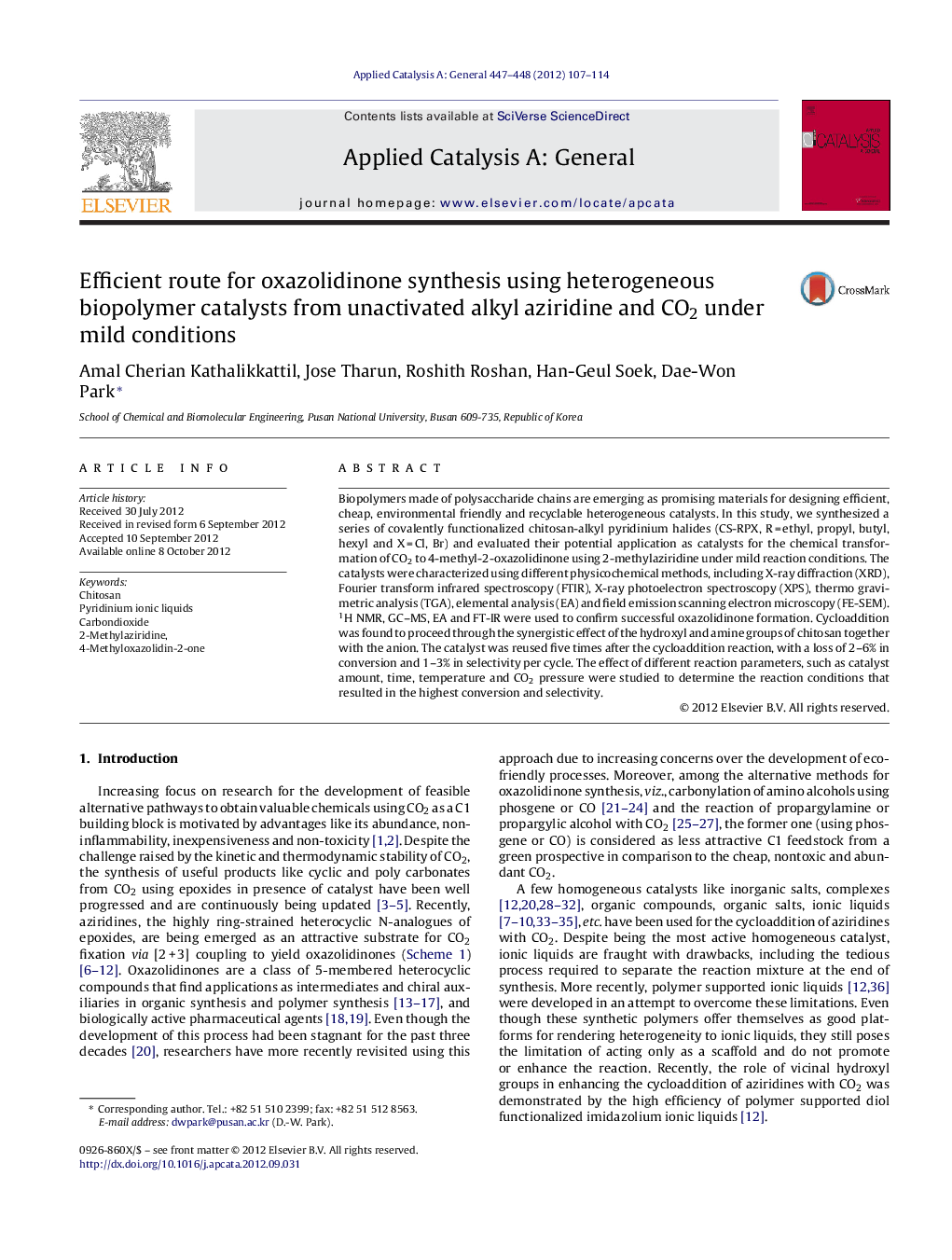| Article ID | Journal | Published Year | Pages | File Type |
|---|---|---|---|---|
| 40625 | Applied Catalysis A: General | 2012 | 8 Pages |
Biopolymers made of polysaccharide chains are emerging as promising materials for designing efficient, cheap, environmental friendly and recyclable heterogeneous catalysts. In this study, we synthesized a series of covalently functionalized chitosan-alkyl pyridinium halides (CS-RPX, R = ethyl, propyl, butyl, hexyl and X = Cl, Br) and evaluated their potential application as catalysts for the chemical transformation of CO2 to 4-methyl-2-oxazolidinone using 2-methylaziridine under mild reaction conditions. The catalysts were characterized using different physicochemical methods, including X-ray diffraction (XRD), Fourier transform infrared spectroscopy (FTIR), X-ray photoelectron spectroscopy (XPS), thermo gravimetric analysis (TGA), elemental analysis (EA) and field emission scanning electron microscopy (FE-SEM). 1H NMR, GC–MS, EA and FT-IR were used to confirm successful oxazolidinone formation. Cycloaddition was found to proceed through the synergistic effect of the hydroxyl and amine groups of chitosan together with the anion. The catalyst was reused five times after the cycloaddition reaction, with a loss of 2–6% in conversion and 1–3% in selectivity per cycle. The effect of different reaction parameters, such as catalyst amount, time, temperature and CO2 pressure were studied to determine the reaction conditions that resulted in the highest conversion and selectivity.
Graphical abstractFigure optionsDownload full-size imageDownload high-quality image (114 K)Download as PowerPoint slideHighlights► Covalent functionalization of alkyl pyridinium halides to chitosan (CS-RPX). ► CS-RPX catalyst for efficient oxazolidinone synthesis. ► Synergism offered by hydroxyl, amino and anion of catalyst unit for cycloaddition. ► Recycled the catalyst up to five consecutive cycles.
